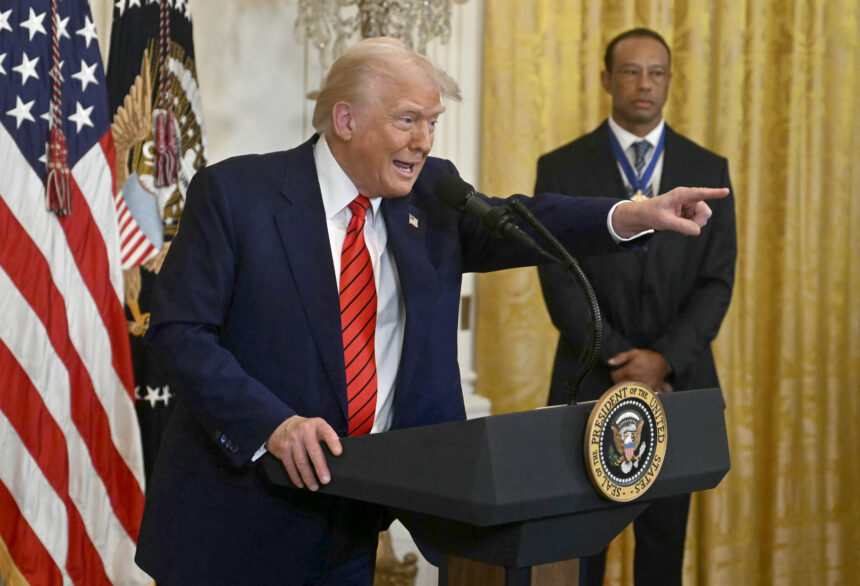The Constitution explicitly prohibits presidents from seeking a third term in office. However, this hasn’t deterred Donald Trump from raising the idea multiple times, including during an official White House event.
During a Black History Month event held in the East Room, Trump asked the crowd, “Should I run again? You tell me.” The predominantly Black audience, which included notable figures like Sen. Tim Scott and Rep. John James, as well as Tiger Woods, responded with chants of “Four more years!”
Trump, known for his provocative statements, acknowledged that his question and the crowd’s enthusiastic response would likely stir controversy. This marks the first time he has publicly floated the idea of a third term while in an official capacity.
These comments come amidst mounting concerns about Trump’s adherence to constitutional boundaries. The 22nd Amendment, ratified 74 years ago, limits presidents to two terms. However, Trump’s actions in office, such as freezing Congress-approved funds and asserting authority over federal agencies, suggest a willingness to challenge constitutional norms.
Despite these controversies, Trump continues to enjoy strong support from his base. Former advisor Steve Bannon, speaking at the Conservative Political Action Committee, echoed the sentiment that the future of the MAGA movement rests with Trump. He proclaimed, “We want Trump in ’28. That’s what they can’t stand. A man like Trump comes along only once or twice in the country’s history. We want Trump!”
In a display of Trump’s penchant for self-promotion, the administration’s official social media account shared a photoshopped image of him on a mock Time magazine cover. The caption declared, “CONGESTION PRICING IS DEAD. Manhattan, and all of New York, is SAVED. LONG LIVE THE KING!” This reference to the administration’s decision to revoke federal approval for congestion pricing in New York exemplifies Trump’s flair for dramatic messaging.
As Trump continues to flirt with the idea of a third term, his provocative statements and actions are likely to fuel further debate over presidential power and constitutional limits.








